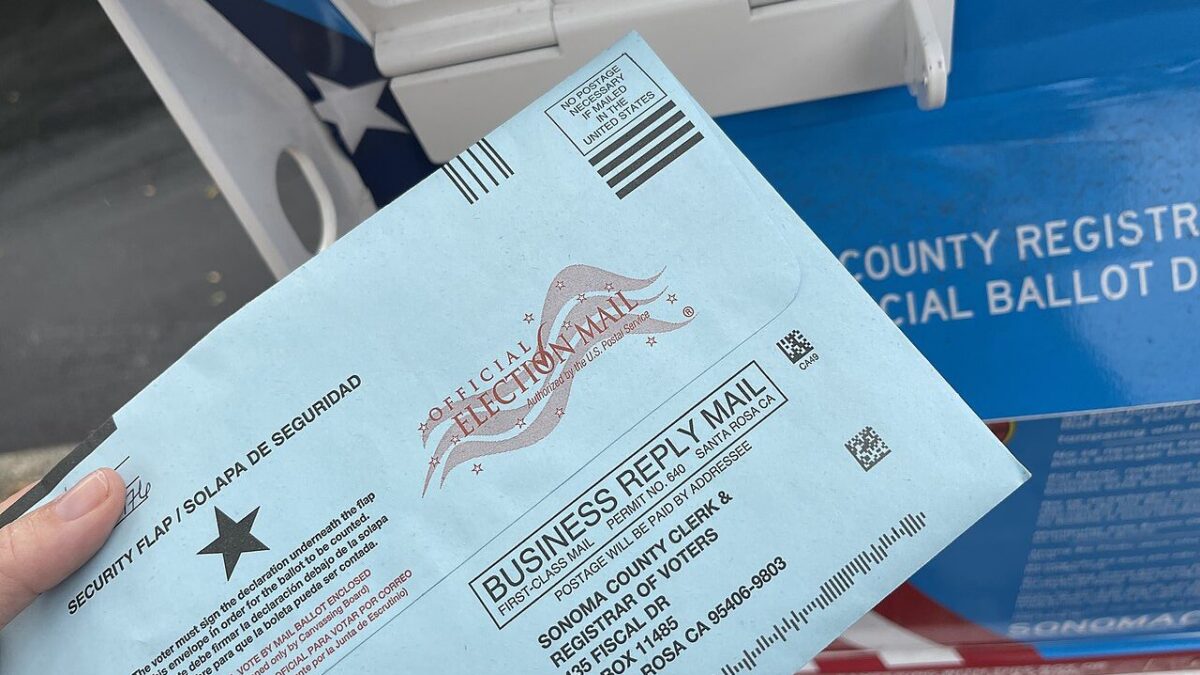Republicans have long shunned the practice of “ballot harvesting” — and with good reason. Trafficking voters’ ballots by the batch is a core Democrat strategy, and even when done legally, the practice makes it harder to detect potential ballot fraud and undermines voter confidence. But with dozens of states permitting legal ballot collection, Republicans can no longer sit back and hope Election Day turnout will be enough to combat Democrats’ tactics.
“Ballot harvesting” refers to when a third party, such as volunteers or paid workers, go to residences, nursing homes, and other locations to pick up completed ballots and drop them off at election offices or another designated drop-off location.
At least 24 states permit a voter to designate an individual who can return his ballot for him, though some states include other stipulations such as how many ballots an individual can return. Democrat operatives have long used the procedure to help their candidates win.
Just months before the presidential election, Democrats in Nevada pushed through legislation that legalized ballot collection by third parties. California got a head start — the state quietly passed legislation in 2016 legalizing the practice, which was then credited with helping Democrats take back the House in 2018. An estimated 250,000 ballots were collected and dropped off in California’s Orange County during the 2018 midterms.
Democrat operatives have also been caught trafficking ballots in states that prohibit the practice. Guillermina Fuentes of Arizona was indicted in 2020 and later sentenced to probation after she pled guilty to trafficking other voters’ ballots. Fuentes “ran a sophisticated operation using her status as a well-known Democratic operative in the border city of San Luis to persuade voters to let her gather and in some cases fill out their ballots,” The Associated Press reported. Arizona law states that only a “family member, household member or caregiver” can return a ballot on a voter’s behalf.
Just last year, a Connecticut mayoral race was overturned by a judge after video appeared to show campaign affiliates of the incumbent Democrat stuff ballot boxes, a violation of state law that says a voter “must personally mail or personally return the ballot for it to be counted” with exceptions for household relatives.
Even in states where ballot trafficking is legal, many Republicans rightly point out that these practices reduce the voter’s personal investment in the election, and make it easier for outside groups to take advantage of low-information voters or even vulnerable populations such as nursing home residents. While it may be honorable for Republicans to want to shun ballot collection and focus on get-out-the-vote efforts to earn in-person votes, doing so dooms Republicans to playing by a totally different set of rules than Democrats.
The Republican National Committee (RNC) launched a plan last year promising to “fight against bad ballot harvesting laws” while making an effort to conduct its own ballot collection operations “where legal.”
The newly-elected RNC chair and co-chair reiterated the position on legal ballot gathering.
“Republicans will fight in every state to turn out the vote and will utilize every legal process to get voters to the polls and chase ballots across the country,” Chairman Michael Whatley said in a statement to The Federalist. “We will take advantage of mail voting while fighting in court to make the practice more secure as we work to re-elect President Donald J. Trump in November.”
Newly-elected RNC co-chair Lara Trump recently announced the party would be focusing its efforts on ballot collection as well.
“We need to be doing legal ballot harvesting — something that has never been done by the RNC, but I can promise you will be a huge part of what we’re planning to do,” Trump said, according to the Washington Examiner.
Trump told The Federalist the RNC is “building and activating the most effective election integrity program that has ever existed to safeguard our elections, while also focusing on voter turnout and early voting in order to win.”
Cleta Mitchell, a senior legal fellow at the Conservative Partnership Institute, told The Federalist that unless Republicans build up other election infrastructure too, ballot collection still won’t be enough to combat Democrats.
Democrats have “over more than a decade [built] an extensive and sophisticated infrastructure to support” their get-out-the-vote efforts, Mitchell explained. Of course, the more voters that vote, the more ballots there are to collect.
Mitchell said claims that Republicans simply need to “vote early” and engage in ballot collection to close the gap with Democrats is “just not enough and I hope that the GOP will focus on the depth of the issues and challenges we face.”
“There are substantial differences between [what Republicans have and] the data on which the left relies for their GOTV efforts — all done with soft dollars, not hard dollars as the RNC is proposing — and the levels of sophistication that the left has perfected over the past decade,” Mitchell explained. “The data differences are literally like comparing horse drawn carriages to SpaceX.”
Mitchell said she hopes the RNC will understand they need to work from the ground up in order to level the playing field.
“I hope they are going to rip out the existing data and GOP system and rebuild from the bottom up: from voter registration and outreach, to actual [get-out-the-vote] based on the laws of each jurisdiction,” Mitchell said. “I hope the RNC — and all the GOP committees — will train and require every campaign at every level to engage in voter registration, and voter turnout, and also require GOP consultants to prioritize the ground game rather than just paid advertising.”








